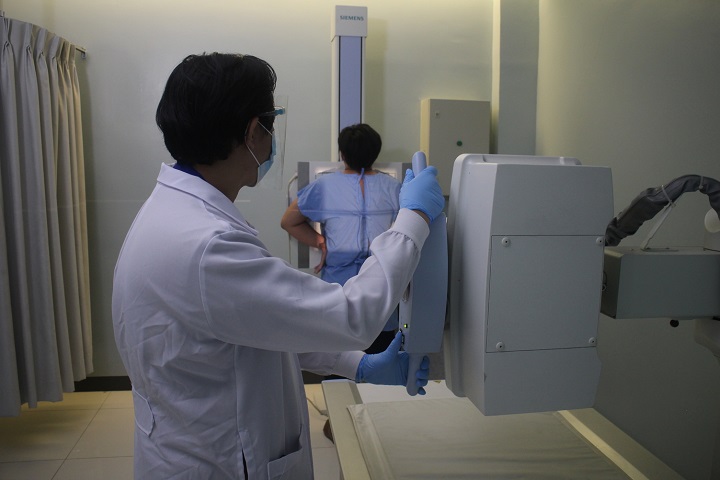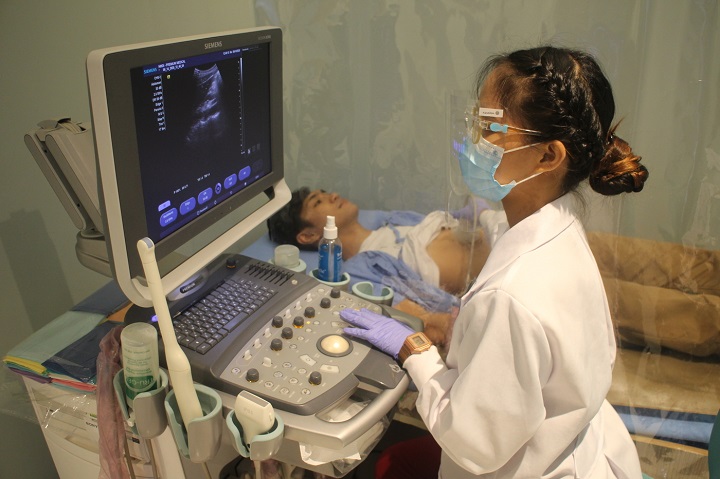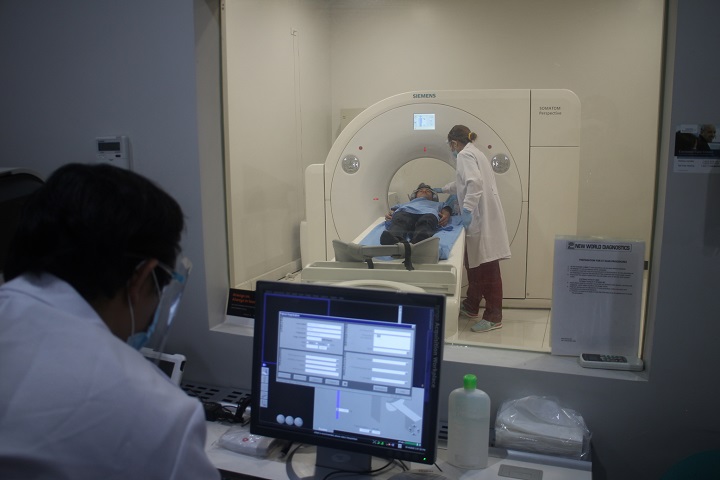Diagnostic imaging may sound like some unfamiliar, complex medical procedure, but that is hardly the case – in fact, most people, especially those in urban, developed areas, have probably undergone diagnostic imaging at least once in their lives.
Diagnostic imaging is an umbrella medical term for procedures or techniques that allow doctors to view the inside of the body in order to assess patients’ internal health, confirm a diagnosis or find the cause of an illness or injury.
Many imaging procedures, like chest x-rays, are non-invasive, quick and painless, while others may involve you lying still inside the imaging machine for a long time, like MRI scans. Still others involve minimal radiation exposure, like CT scans, while others, such as a colonoscopy, may require a small camera, called a ‘scope’, to be inserted into your body.
These medical procedures have been around for a long time and have been a vital part of many persons’ medical history already, helping in the diagnoses of various illnesses and aiding in the treatment and prevention of further disease or damage.
However, there are still many myths and misconceptions surrounding diagnostic imaging that do more harm than help the Filipino community in staying healthy. Let’s look at some of them:
1. X-rays emit harmful levels of radiation.

Let’s get this out of the way by first explaining what an x-ray does. An x-ray is a high-frequency radiation wave that can pass through clothes, body tissue, organs and muscles. However, there is a certain density it cannot penetrate through – our bones! That is why x-rays are used to check for fractures or cracks in our bones, or if there are foreign objects lodged in our bodies that shouldn’t be there. While x-rays do use radiation, the dose is so small, it does not even linger on your body after the procedure. In fact, many other situations expose you to greater radiation than x-rays do, such as flying in an airplane. So are x-rays safe? The answer is yes!
2. Ultrasounds are for pregnant women only.

Ultrasounds are commonly used during pregnancies to observe the normal growth of a fetus inside the mother’s womb. That does not mean that ultrasound imaging cannot be used to help in diagnosing other things. In fact, ultrasounds can also be used on males just as much as it is used on females. That is because ultrasound imaging uses high-frequency sound waves to form an image of a person’s internal structure. Doctors will often perform ultrasound imaging to check the condition of a person’s organs, such as their heart, liver, or kidneys. This just shows that one does not have to be pregnant to get an ultrasound.
3. All imaging technologies use radiation.

There are definitely procedures that use radiation, but there are also many that don’t – ultrasounds being one of them, which is why they are used on pregnant women, because the soundwaves will not harm the baby. Another imaging procedure that does not use radiation is MRI scanning. Short for Magnetic Resonance Scanning, MRIs use magnetic fields and radio frequency signals to create an image of a patient’s internal structure. MRIs are a common alternative to patients who may have an adverse reaction to the radiation from CT scans.
4. Diagnostic imaging is an outdated technology.
This could not be farther from the truth. Diagnostic imaging, just like many technologies being used in the medical field, is in a state of continuous innovation and advancement. In fact, 3.6 billion diagnostic medical examinations are performed each year around the world, proving that diagnostic imaging procedures are still very much relevant today. X-rays, in particular, are often included in annual physical examinations, and are one of the most inexpensive imaging scans available to patients.
Because diagnostic imaging is practically a necessity, many hospitals are equipped with the facilities for it, and there are also clinics and laboratories dedicated to providing high quality yet affordable procedures. New World Diagnostics, Inc. (NWDI) aims to make diagnostic imaging accessible to all Filipinos, offering procedures such as X-rays, Ultrasound Imaging for general, obstetric, or vascular purposes, Mammography, and Bone Densitometry. They also offer cardiac and pulmonary imaging services, like Electrocardiography (ECG), Stress Test and Pulmonary Function Test (PFT). CT Scans are also available at their premium medical branches.
“Our clinics offer a wide array of out-patient diagnostic and imaging services,” said Ms. Maria Estella Diokno, Vice President and COO of the company. “We are committed to providing quality, patient-centered care, as well as convenience, to everyone who chooses to have their tests done at NWDI.”

